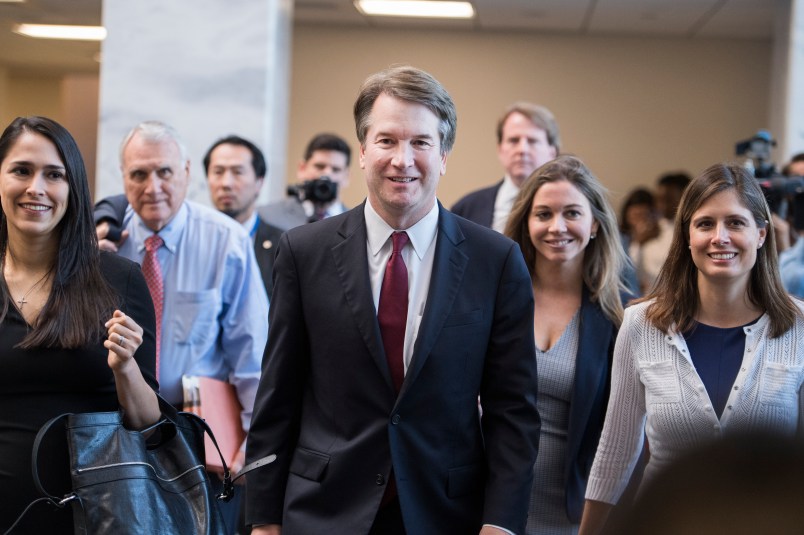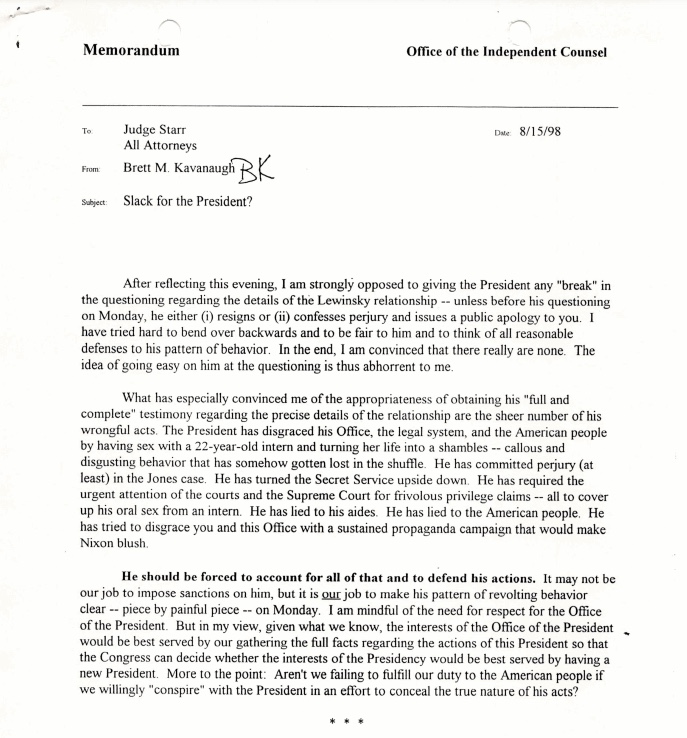The Washington Post just published the full text of a memo Bret Kavanaugh wrote in August 1998 about questioning then-President Clinton as the country hurtled toward impeachment. Most attention will focus on the list of sexually explicit questions he suggested asking the president when he was interviewed by the Independent Counsel’s Office. You can see those here. To me though, those are not the most telling. It’s what comes before the sex questions.
Here’s the portion of the memo in which Kavanaugh argues against cutting President Clinton any “slack”.
This is clearly the voice of someone who simply hated President Clinton. That’s not terribly surprising. The Starr investigation was stocked with GOP partisans. It was a thoroughly corrupt operation. On other hand, this was twenty years ago. Kavanaugh was in his early 30s at the time. He’s in his early 50s now. To paraphrase the awkward exculpations of the late Henry Hyde, youthful indiscretions.
But that doesn’t add up. For his entire career as a DC lawyer, Kavanaugh has stood for maximal presidential power. This is not necessarily illegitimate in itself. There’s a range of opinion about the power that the President has vis a vis the other branches of the government. There is also a range of opinion about how much criminal prosecution is the answer to a law-breaking President as opposed to Congress and its impeachment power. But Kavanaugh has always been on the extreme side of presidential power.
Indeed, remember those comments that were reported last month, in which he said that U.S. v Nixon, the unanimously decided decision which forced Nixon to hand over his White House recordings may have been wrongly decided?
Well, those comments were published in early 1999, about a symposium that had happened a few months earlier. In other words, those comments in favor of maximal Presidential power were made almost contemporaneous with that memo, which he wrote in August 1998.
More recent comments in favor or extreme presidential power have been portrayed as a ‘change of heart’ for Kavanaugh. The evidence doesn’t back up that interpretation. For his whole career, Kavanaugh has believed in maximal presidential power. Unless it’s a Democrat, unless it’s a president he opposes.







